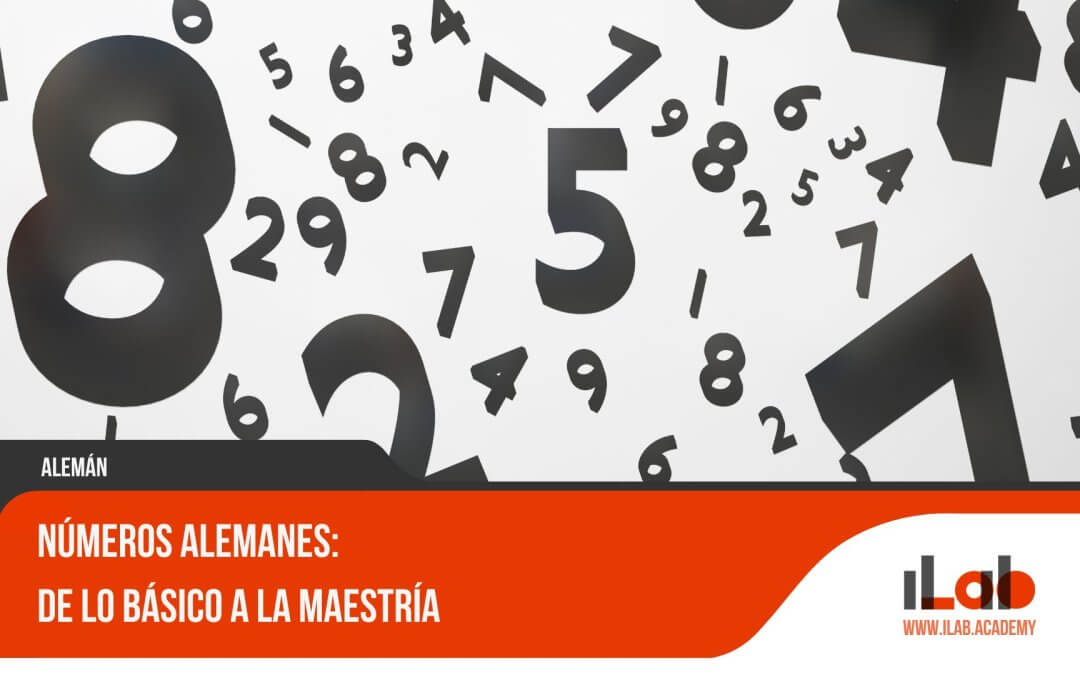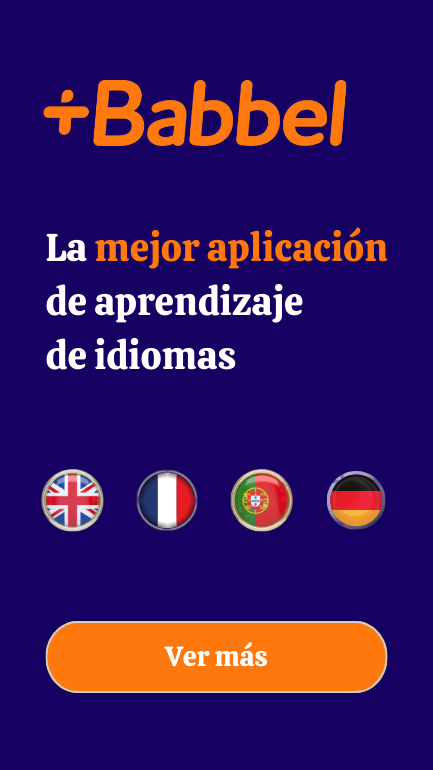Table of contents
Expressing love in German offers a tapestry of heartfelt phrases. The iconic “Ich liebe dich” conveys deep romantic love, capturing profound emotions in serious relationships. For lighter affection, use “Ich mag dich” to express initial fondness or attraction, and reserve “Ich hab dich lieb” for nurturing warmth in friendships and family. Curious about showing ultimate commitment? Try saying “Du bist meine große Liebe” to signify devotion. German culture values authenticity and sincerity in love expressions, so choose your words wisely. Would you like to discover more about these fascinating linguistic expressions? There’s much more to explore.
The Most Common Ways to Say “I Love You” in German
Understanding how to express love in German involves recognizing the nuances of phrases like “Ich liebe dich,” “Ich hab dich lieb,” and “Ich mag dich.” Each phrase carries a different level of intensity and formality, catering to various types of relationships. Have you considered how choosing the right expression can deepen your connections with German-speaking friends or loved ones?
“Ich liebe dich”: The Classic Phrase for Romantic Love
Why is “Ich liebe dich” so significant in the domain of German expressions of love? This phrase, translating to “I love you,” stands as the most direct and profound declaration of romantic love in the German language. It is reserved for relationships marked by deep trust and intimacy, typically between partners or spouses.
The careful use of “Ich liebe dich” reflects the cultural tendency of Germans to express such sentiments with certainty and sincerity, ensuring that these words carry substantial weight and meaning.
In Germany, expressing love is not just a casual act but a significant emotional milestone. Unlike more casual expressions, “Ich liebe dich” signifies a serious commitment and deep emotional connection. It communicates not just affection but a pledge of enduring partnership and mutual respect.
This phrase is not used lightly, which is why it often marks pivotal moments in relationships, such as marriage proposals or anniversaries.
Understanding its cultural significance helps non-native speakers appreciate the depth these words convey. The phrase embodies the essence of committed love, making it an essential addition to the vocabulary of anyone wishing to express genuine romantic feelings in German.
“Ich hab dich lieb”: A More Casual Expression of Affection
While “Ich liebe dich” carries significant weight as a declaration of deep romantic love in German, “Ich hab dich lieb” offers a lighter, more versatile expression of affection suitable for a variety of relationships.
This phrase is often used among family and close friends, providing a comforting way to express warmth and care without the intensity that “Ich liebe dich” might convey. It’s akin to saying “I love you lots” or “I care about you deeply,” making it perfect for non-romantic contexts.
Here are some ways to understand and use “Ich hab dich lieb”:
- Family Bonds: This phrase is ideal for expressing affection within the family, such as between siblings or from parents to children. It reflects a deep sense of care and closeness that is essential in familial relationships.
- Friendship: It suits friendships where expressing love might feel too strong. It maintains the bond while recognizing the importance of the relationship.
- Everyday Use: “Ich hab dich lieb” can be used casually to remind loved ones of their significance in daily interactions, enhancing emotional connections.
Understanding such nuances in the German language enriches communication and fosters stronger relationships.
“Ich mag dich” and “Ich mag dich sehr/wirklich”: Expressing Fondness or Attraction
Affection in language can be as nuanced as a brushstroke on a canvas, capturing the subtleties of human relationships. In German, the phrase “Ich mag dich” serves as a versatile expression of fondness or attraction, adaptable to various contexts. Used in the early stages of a relationship, it conveys a sense of admiration without the weight of deeper commitment. This phrase can also be employed among friends, offering a straightforward yet meaningful way to express platonic affection.
For those seeking to intensify this sentiment, “Ich mag dich sehr” or “Ich mag dich wirklich” adds a layer of sincerity, indicating a stronger emotional connection. These variations reflect an interest or attraction beyond mere acquaintance, embodying a shift from casual liking to genuine fondness. Such expressions are particularly useful for traversing the nuanced landscape of early romantic interactions, where feelings are still evolving.
Understanding these phrases offers valuable insight into the cultural context of expressing love and affection in German. It encourages thoughtful communication, fostering relationships built on mutual appreciation and respect.
Express Your Love in German and Learn More with Lingoda
Discover how to say “Ich liebe dich” and explore other romantic expressions in German. With Lingoda, you can learn German with native-speaking teachers and flexible classes that fit your schedule, so you can speak from the heart in any language.
Intensifying Your Love: Stronger Expressions of Affection
In communicating profound affection, the German language offers expressions that vividly capture the essence of deep love.
Phrases such as “Ich liebe dich von ganzem Herzen” and “Du bist meine große Liebe” convey a commitment and intensity that resonate beyond mere words.
Are you ready to express your love with the passion it deserves, embracing the strength of phrases like “Ich liebe dich mehr als das Leben” and “Ich liebe dich noch immer”?
“Ich liebe dich von ganzem Herzen”: Loving with All Your Heart
Expressing love with intensity and sincerity in the German language often involves phrases that convey profound emotional depth. “Ich liebe dich von ganzem Herzen,” translating to “I love you with all my heart,” is a quintessential example of such an expression. This phrase not only emphasizes the depth of one’s emotions but also underlines the sincerity and wholehearted devotion towards the beloved. It is a reflection of a love that is unwavering and profound.
To understand the significance of this expression, consider the following points:
- Cultural Depth: This phrase reflects the German inclination towards expressing love with certainty and authenticity. It is reserved for moments of genuine emotional connection, allowing for a more profound expression of feelings.
- Emotional Intensity: Using “Ich liebe dich von ganzem Herzen” signals a strong and deep-rooted affection, surpassing ordinary declarations of love. It is an affirmation of complete emotional investment in a relationship.
- Personal Connection: By articulating love in this manner, individuals can convey their innermost feelings, fostering a bond that is both intimate and enduring.
“Du bist meine große Liebe”: Declaring Someone as Your Great Love
Declaring someone as “Du bist meine große Liebe” in German is a profound affirmation of one’s romantic devotion, signifying that the person is the love of your life. This phrase captures the essence of deep, unwavering affection and is reserved for those who occupy a central place in one’s heart.
Unlike more casual expressions, such as “Ich liebe dich” or “Ich hab dich lieb,” which may convey varying degrees of love, “Du bist meine große Liebe” elevates the sentiment to a declaration of ultimate commitment and emotional investment.
In the context of German culture, where expressions of love are often more reserved and deliberate, using such a powerful phrase underscores the sincerity and depth of one’s feelings. It signifies a relationship that goes beyond mere attraction or affection, marking a profound connection that is cherished and celebrated.
For those endeavoring to communicate the significance of their romantic partner, this phrase becomes an essential tool, encapsulating the gravity and beauty of their bond.
Have you considered how language shapes your expression of love? Whether learning German or deepening your understanding of romantic nuances, embracing such expressions enhances emotional connections and enriches personal relationships.
“Ich liebe dich mehr als das Leben/über alles”: Loving More Than Life Itself
Often, the phrases “Ich liebe dich mehr als das Leben” and “Ich liebe dich über alles” are employed to articulate an unparalleled level of devotion and intensity in romantic relationships. These expressions convey a willingness to prioritize a beloved partner above all else, capturing the essence of profound affection and sacrifice.
In the German language, such declarations are reserved for those truly monumental moments when words must match the depth of emotion.
To better understand these expressions, consider the following:
- Contextual Usage: These phrases are not commonly used in everyday conversation. Instead, they are reserved for special occasions or heartfelt moments when expressing the magnitude of one’s feelings is essential.
- Cultural Resonance: Within German culture, where expressions of love are often measured and deliberate, using such powerful words signifies an intentional and deeply felt commitment.
- Emotional Impact: Saying “Ich liebe dich mehr als das Leben” or “Ich liebe dich über alles” can evoke strong emotional responses, reinforcing the bond between partners and affirming their mutual dedication.
Incorporating these expressions thoughtfully can enrich your experience of romance, offering a profound way to communicate the boundless nature of your love.
“Ich liebe dich noch immer”: Expressing Enduring Love
The phrase “Ich liebe dich noch immer” serves as a poignant reminder of the endurance and resilience of love, capturing the essence of an affection that transcends time. In the German language, this expression is used to convey a deep, enduring love that remains steadfast despite the passage of years.
It speaks to the heart of relationships where love continues to thrive, unaffected by life’s challenges or changes. This phrase can be particularly meaningful for those in long-term relationships, signifying a commitment that has withstood the test of time.
Understanding this expression allows one to appreciate the cultural nuances of German love phrases. While Germans may be more reserved in their expressions of affection, the depth of their feelings is evident in phrases like “Ich liebe dich noch immer.”
It demonstrates a love that is not only present but also enduring and unwavering. When learning German, recognizing the significance of such expressions can enhance both linguistic skills and cultural understanding.
For those seeking to express long-lasting affection in German, this phrase is a powerful tool, offering a heartfelt way to convey the timeless nature of true love.
Expressing love in German can be even more meaningful when you’re familiar with other aspects of the language. For instance, learning how to say happy birthday in German can add a special touch to any celebration. It’s also helpful to know some German greetings to start conversations in a warm and natural way. If you’re planning a trip to Germany, you’ll want to check out the best phrases for shopping to find that perfect gift. And, during the holiday season, surprise your loved ones with a festive “Merry Christmas” in German to spread the holiday cheer.
German Terms of Endearment and Pet Names
As you explore the charming world of German terms of endearment, you’ll encounter delightful expressions like “Schatz,” “Schatzi,” and “Schatzilein,” all translating to “treasure” or “sweetheart,” which are commonly used to show affection.
“Liebling,” meaning “darling” or “favorite,” is another popular choice, adding warmth to relationships.
Have you ever wondered how regional variations influence these pet names, and what unique ones you might discover?
“Schatz”, “Schatzi”, and “Schatzilein”: Treasure and Sweetheart
Embracing affection through language, German speakers often use terms like “Schatz,” “Schatzi,” and “Schatzilein” to convey deep emotional bonds in romantic relationships.
These endearing terms, derived from the German word for “treasure,” highlight the significance of the person being addressed, indicating their cherished status in one’s life. Such expressions are more than mere words; they embody the sentiments of love, care, and appreciation.
Understanding these terms of endearment involves recognizing their nuances and appropriate usage:
- “Schatz”: Literally translating to “treasure,” this term is commonly used among partners to express fondness and affection. It signifies the value one places on their partner, akin to valuing a precious possession.
- “Schatzi”: A diminutive form of “Schatz,” often used playfully or tenderly. It adds a layer of informality and warmth, making it a popular choice for everyday interactions between loved ones.
- “Schatzilein”: By adding the suffix “-lein,” this variation further intensifies the endearment, implying an even greater level of tenderness and closeness.
Ultimately, these terms highlight how language can strengthen relationships, serving as a bridge between hearts.
“Liebling”: Darling or Favorite
Continuing the exploration of affectionate expressions, “Liebling” emerges as a cherished term of endearment in the German language, signifying “darling” or “favorite.” This term underscores the special place someone holds in one’s heart, often used in both romantic and familial contexts.
The use of “Liebling” conveys warmth and affection, highlighting a connection that transcends mere acquaintance. It is a versatile expression, applicable in various relationships, from intimate partners to cherished family members.
In German-speaking households, calling someone “Liebling” goes beyond the mere act of naming; it is an affirmation of their value and importance. Imagine a parent tenderly referring to their child as “Liebling,” infusing everyday interactions with love and care.
Meanwhile, in romantic settings, addressing a partner as “Liebling” can reinforce bonds, fostering an emotional closeness that words like “darling” capture beautifully.
Are you enthusiastic to deepen your understanding of German expressions of love? Embrace the nuances of “Liebling” in your own vocabulary. Let it remind you of the warmth and affection that can be shared through language.
How might you use “Liebling” to brighten someone’s day and express your appreciation?
Regional Variations and Unique Pet Names
The German language is rich with a plethora of terms of endearment and pet names, reflecting regional variations and unique cultural influences. These affectionate expressions are not just limited to well-known terms like “Schatz” (treasure) or “Liebling” (darling); rather, they extend to a wide array of creative and personalized names that vary by region and dialect.
Understanding these nuances can greatly enhance one’s ability to connect with native speakers on a more intimate level.
Here are three notable aspects of German pet names and regional variations:
- Regional Diversity: In Bavaria, “Spatzl” is a popular term of endearment, akin to “little sparrow,” whereas in northern Germany, you might hear “Süße” for “sweetie.” These variations reflect the cultural diversity within German-speaking areas.
- Unique Characteristics: Terms like “Bärchen” (little bear) and “Maus” (mouse) highlight the German affection for using animal names to convey endearment, often chosen for their perceived cuteness and warmth.
- Personalization: Germans often create unique pet names based on personal traits or shared experiences, such as “Kuschelbär” (cuddle bear) or “Schnuckiputzi,” making the expression of affection deeply personal and meaningful.
Understanding these variations allows for deeper emotional connections and enriches the learning experience.
Love in German Proverbs and Sayings
German proverbs and sayings about love offer unique insights into the cultural values surrounding relationships.
Consider the saying, “Alte Liebe rostet nicht,” which suggests that true love endures over time, much like a cherished memory that remains vivid despite the years.
Another popular adage, “Liebe geht durch den Magen,” humorously implies that a way to one’s heart is through satisfying culinary delights, blending affection with everyday experiences.
How do these timeless expressions resonate with your own understanding of love?
“Alte Liebe rostet nicht”: Old Love Never Rusts
In the tapestry of German language and culture, the proverb “Alte Liebe rostet nicht,” which translates to “Old love never rusts,” stands out as a symbol of the enduring nature of genuine affection.
This saying reflects the belief that true love withstands the test of time, remaining unchanged despite the challenges life may present. It’s a reflection of the resilience of emotions, suggesting that once a bond is forged in love, it retains its strength and luster over the years.
Understanding this proverb can offer valuable insights into how Germans perceive love and relationships. Here are three aspects to take into account:
- Cultural Significance: This proverb is deeply rooted in German traditions, emphasizing the importance of loyalty and long-lasting connections in personal relationships.
- Emotional Resilience: It reflects the idea that authentic love is not easily swayed by external circumstances, highlighting the emotional fortitude required to maintain enduring bonds.
- Inspirational Value: For those learning about German culture, this saying serves as a reminder that love isn’t just a fleeting emotion but a steadfast commitment that can inspire and nurture over time.
“Liebe geht durch den Magen”: Love Goes Through the Stomach
“Liebe geht durch den Magen,” a widely recognized German proverb, underscores the intrinsic link between culinary delights and romantic affection. This saying suggests that cooking and sharing meals can pave the way to someone’s heart, highlighting the cultural belief in food as an expression of love and care.
In German culture, food is not merely sustenance but a bridge to emotional connections, symbolizing warmth and hospitality. In many relationships, preparing a meal is a thoughtful gesture that conveys deep affection and commitment. The act of cooking for someone can be a powerful demonstration of love, showing attentiveness to personal tastes and preferences.
This proverb reflects the idea that nurturing companionship often begins at the dining table, where shared experiences create lasting bonds. For those exploring the depths of German language and culture, understanding idiomatic expressions like “Liebe geht durch den Magen” can enrich your appreciation of how love is expressed beyond words.
It invites us to contemplate how everyday actions, such as preparing a favorite dish for a loved one, can be as meaningful as spoken declarations of love. Embrace the proverb’s wisdom, and let culinary creativity enhance your expressions of affection.
Expressing Love in Different Contexts
Understanding how to express love in different contexts is essential for building meaningful relationships in any language, including German.
For family and friends, phrases like “Ich hab dich lieb” and “Ich mag dich sehr” convey affection without the intensity reserved for romantic declarations.
In romantic relationships, “Ich liebe dich” and its variations express a deeper connection that signifies trust and commitment.
How do these expressions enhance your ability to communicate your feelings effectively?
Family and Friends: “Ich hab dich lieb” and “Ich mag dich sehr”
Amidst the various expressions of affection in German, “Ich hab dich lieb” and “Ich mag dich sehr” hold special significance when conveying love towards family and friends. These phrases highlight the nuances of expressing platonic affection and demonstrate a softer, more casual approach to communicating feelings, compared to the more reserved “Ich liebe dich.”
Understanding these expressions enriches one’s ability to connect with German speakers on a personal level.
- “Ich hab dich lieb”: This phrase is often used among close friends and family members. It translates to “I love you lots” or “I care about you,” illustrating a deep, yet platonic bond. It’s heartfelt without carrying the weight of romantic implications.
- “Ich mag dich sehr”: Meaning “I like you very much,” this expression is suitable for friendships and conveys sincere appreciation. It’s a step up from “Ich mag dich,” adding an extra layer of warmth and sincerity.
- Contextual Use: Both expressions are versatile, emphasizing the importance of context. They allow for affection to be expressed without crossing into romantic territory, ensuring clear communication in personal relationships.
Romantic Relationships: “Ich liebe dich” and Its Variations
In the domain of romantic relationships, the phrase “Ich liebe dich” holds profound significance as the quintessential expression of love in the German language. It is not merely a phrase but a declaration of deep trust and unwavering commitment, reserved for partners and spouses.
Germans, known for their reserved nature, use this expression with caution, ensuring that the sentiment is genuine and mutual. Unlike more casual expressions like “Ich mag dich” or “Ich hab dich lieb,” which indicate platonic affection or a lighter form of liking, “Ich liebe dich” signals a serious and enduring bond.
For those steering through the early stages of romance, phrases like “Ich bin in dich verliebt” (I am falling in love with you) or “Ich habe mich in dich verliebt” (I have fallen in love with you) provide ways to express emerging feelings.
These expressions serve as tentative steps towards deeper affection, allowing individuals to communicate their emotions while gauging the other’s response. Understanding these nuances is essential for anyone wishing to communicate love authentically in German, fostering connections that are heartfelt and respectful.
The Cultural Significance of “Ich liebe dich”
Understanding the cultural significance of “Ich liebe dich” in German-speaking societies is essential for anyone wishing to express deep affection appropriately.
Reserved for serious relationships, this phrase embodies a profound level of trust and commitment and is not used lightly.
Have you considered how choosing the right moment to say “Ich liebe dich” can strengthen a relationship and convey sincere emotions?
When and How to Use “Ich liebe dich” Appropriately
For those maneuvering through the intricacies of expressing love in German, understanding the cultural significance of “Ich liebe dich” is essential. This phrase transcends mere words, embodying deep emotional commitment and trust. Unlike its English counterpart, “Ich liebe dich” is reserved for significant relationships, often between romantic partners or spouses. Its usage reflects the German penchant for certainty and the importance of sincerity in declarations of love.
In determining when and how to use “Ich liebe dich” appropriately, consider these guidelines:
- Relationship Depth: The phrase is typically used in established relationships where deep affection and commitment are evident. It is not casually thrown around but instead signifies a profound connection.
- Cultural Context: Acknowledge the reserved nature of German culture. Unlike the more open expressions of love in other cultures, Germans prefer to reserve “Ich liebe dich” for when it truly matters, making sure the words carry weight.
- Alternative Expressions: Before reaching the level of “Ich liebe dich,” utilize phrases like “Ich hab dich lieb” or “Ich mag dich,” which convey affection without the full intensity of love.
Understanding these nuances makes certain that expressing love in German is both respectful and meaningful.
The Importance of Reserving “Ich liebe dich” for Serious Relationships
Amidst the tapestry of linguistic expressions, the phrase “Ich liebe dich” stands out as a profound declaration within German culture, underscoring its significance in serious romantic relationships. Unlike the casual use of “I love you” in English, “Ich liebe dich” is reserved for deep, committed bonds, reflecting the German preference for sincerity and certainty. This phrase signifies an emotional investment and trust that goes beyond fleeting affection, making it a cornerstone in romantic unions.
In German culture, the cautious use of “Ich liebe dich” highlights the importance of understanding the gravity of such an expression. It’s a commitment that implies a readiness to nurture a profound connection. This practice encourages individuals to assess their feelings thoughtfully before using such a powerful declaration. It serves as a reminder that genuine affection requires depth and authenticity.
For those learning German or steering through relationships within this cultural context, it’s essential to appreciate the weight behind “Ich liebe dich.” This understanding fosters respectful and meaningful interactions, ensuring that affection is expressed with the seriousness it deserves. Embracing this cultural nuance enriches personal connections and deepens one’s appreciation for the complexity of human emotions.
Learning and Practicing German Love Phrases
Mastering German love phrases requires attention to common pitfalls, such as misusing terms of endearment or confusing the subtleties between “Ich liebe dich” and “Ich hab dich lieb.”
To improve your pronunciation and fluency, practice by listening to native speakers and repeating phrases aloud, ensuring proper intonation and accent.
Consider using online resources, language apps, and community classes to deepen your understanding and confidently express your affection in German.
Common Mistakes to Avoid When Expressing Love in German
Maneuvering the intricacies of expressing love in German requires a careful understanding of cultural nuances and language subtleties.
While learning German love phrases, it’s vital to be mindful of common mistakes to avoid miscommunication. Here are three key pitfalls to watch out for:
- Misusing “Ich liebe dich”: This phrase is reserved for deep, committed relationships. Using it prematurely can cause discomfort or confusion. Instead, opt for “Ich hab dich lieb” for friends or family to convey affection without romantic intent.
- Confusing “Ich mag dich” and “Ich liebe dich”: The former expresses platonic liking, while the latter is a serious declaration of love. Understanding these distinctions is important to avoid signaling unintended emotions.
- Overusing terms of endearment: While terms like “Schatz” and “Liebling” are charming, using them with acquaintances or in formal settings may be inappropriate. Reserve these for close relationships to maintain sincerity.
Tips for Improving Pronunciation and Fluency
Steering through the nuances of expressing love in German requires more than just understanding the vocabulary; pronunciation and fluency play a significant role in conveying the right emotions. Accurate pronunciation is essential, as it enhances the emotional impact of phrases like “Ich liebe dich.”
To achieve this, consider practicing with native speakers, either through language exchange platforms or by engaging in conversational groups. This practice helps attune your ear to the rhythm and intonation of German speech, fostering a more natural delivery.
Fluency, while challenging, can be improved through consistent practice. Reading German literature or poetry aloud, especially pieces focused on love, can help you become more comfortable with the language’s flow. Additionally, recording yourself and listening back can be an effective method to identify areas for improvement.
Moreover, immersion through German media, such as films or music, can provide context and emotional resonance, aiding in the memorization of phrases.
Resources for Further Learning and Practice
For those looking to explore deeper into the nuances of expressing love in German, a variety of resources stand ready to enhance both understanding and practice. Engaging with these tools not only builds linguistic skills but also enriches cultural appreciation.
As you commence on this journey, consider incorporating diverse methods that cater to different learning styles and preferences.
- Online Courses and Mobile Apps: Platforms such as Duolingo and Babbel offer structured lessons focusing on vocabulary and pronunciation, including phrases of love and affection. These resources are user-friendly, providing interactive exercises that adapt to your pace.
- Language Exchange Groups: Participating in language exchange meetups allows you to practice German love phrases in real-life conversations. Engaging with native speakers can improve fluency and confidence while offering insights into cultural subtleties.
- German Films and Music: Watching German films or listening to German music introduces you to authentic language usage, enhancing comprehension and pronunciation. Lyrics and dialogues often include expressions of love, providing context and emotional resonance.
Conclusion
Mastering expressions of love in German reveals rich cultural insights and enhances language proficiency. “Ich liebe dich” serves as a fundamental phrase, yet exploring alternatives like “Ich bin in dich verliebt” broadens understanding of relationship dynamics. Embracing German terms of endearment and proverbs enriches emotional expression. Why not deepen communication through these nuanced expressions? Engage with German love phrases to foster meaningful connections and cultural appreciation, opening doors to global interactions and personal growth.














